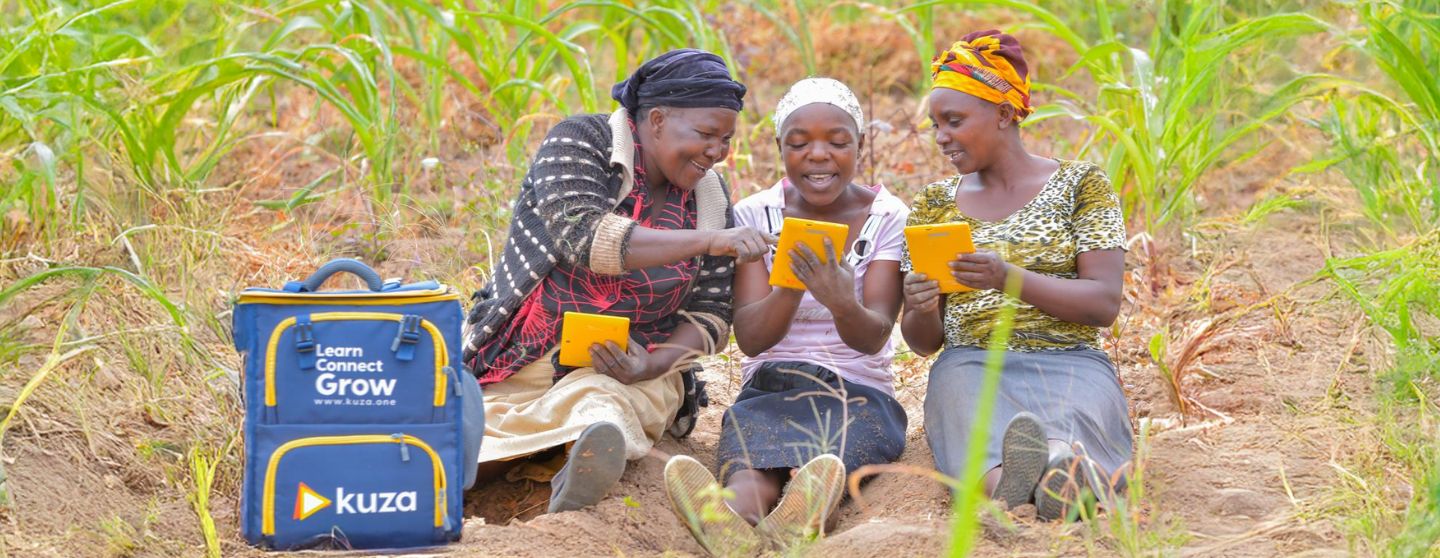

Kuza Biashara

Nairobi, Kenya
June 2018
Software publishing and SaaS platforms
Service with Minor Environmental Footprint
Bangladesh,
Ethiopia,
India,
Kenya,
Mozambique,
Rwanda,
Tanzania,
Uganda,
Zambia
Kuza is a Kenyan social enterprise re-engineering rural food systems across Africa and South Asia. Its OneNetwork platform pairs digital tools with a grassroots human network to deliver last-mile services that matter. Through the REDI (Rural Entrepreneur Development Incubator) program, Kuza trains rural youth to become Agripreneurs - trusted community entrepreneurs who each support around 200 neighboring smallholder farmers. They deliver climate-smart advice, quality inputs, microloans, and market access as a single, integrated service. To date, 6,000 Agripreneurs support 1.2 million farmers across nine countries. Independent studies show 94% of farmers have increased yields, 97% have raised incomes, and over 155,000 new jobs have been created—positively impacting 6.2 million lives. A three-time B Lab Best for the World – Customers honoree and spotlighted by the World Economic Forum, World Bank, and UN agencies, Kuza lives its mantra: Learn • Connect • Grow - with an ambitious goal to empower 100 million farmers by 2030.
Overall B Impact Score
Governance 17.0
Governance evaluates a company's overall mission, engagement around its social/environmental impact, ethics, and transparency. This section also evaluates the ability of a company to protect their mission and formally consider stakeholders in decision making through their corporate structure (e.g. benefit corporation) or corporate governing documents.
What is this? A company with an Impact Business Model is intentionally designed to create a specific positive outcome for one of its stakeholders - such as workers, community, environment, or customers.
Workers 21.7
Workers evaluates a company’s contributions to its employees’ financial security, health & safety, wellness, career development, and engagement & satisfaction. In addition, this section recognizes business models designed to benefit workers, such as companies that are at least 40% owned by non-executive employees and those that have workforce development programs to support individuals with barriers to employment.
Community 37.8
Community evaluates a company’s engagement with and impact on the communities in which it operates, hires from, and sources from. Topics include diversity, equity & inclusion, economic impact, civic engagement, charitable giving, and supply chain management. In addition, this section recognizes business models that are designed to address specific community-oriented problems, such as poverty alleviation through fair trade sourcing or distribution via microenterprises, producer cooperative models, locally focused economic development, and formal charitable giving commitments.
What is this? A company with an Impact Business Model is intentionally designed to create a specific positive outcome for one of its stakeholders - such as workers, community, environment, or customers.
Environment 6.0
Environment evaluates a company’s overall environmental management practices as well as its impact on the air, climate, water, land, and biodiversity. This includes the direct impact of a company’s operations and, when applicable its supply chain and distribution channels. This section also recognizes companies with environmentally innovative production processes and those that sell products or services that have a positive environmental impact. Some examples might include products and services that create renewable energy, reduce consumption or waste, conserve land or wildlife, provide less toxic alternatives to the market, or educate people about environmental problems.
Customers 54.5
Customers evaluates a company’s stewardship of its customers through the quality of its products and services, ethical marketing, data privacy and security, and feedback channels. In addition, this section recognizes products or services that are designed to address a particular social problem for or through its customers, such as health or educational products, arts & media products, serving underserved customers/clients, and services that improve the social impact of other businesses or organizations.
What is this? A company with an Impact Business Model is intentionally designed to create a specific positive outcome for one of its stakeholders - such as workers, community, environment, or customers.